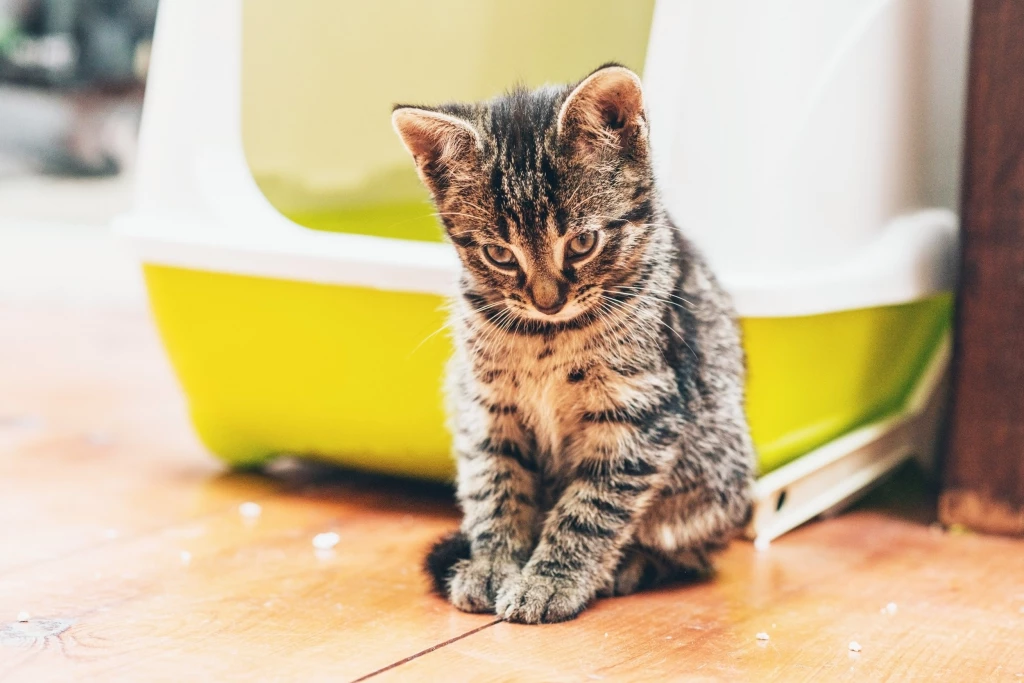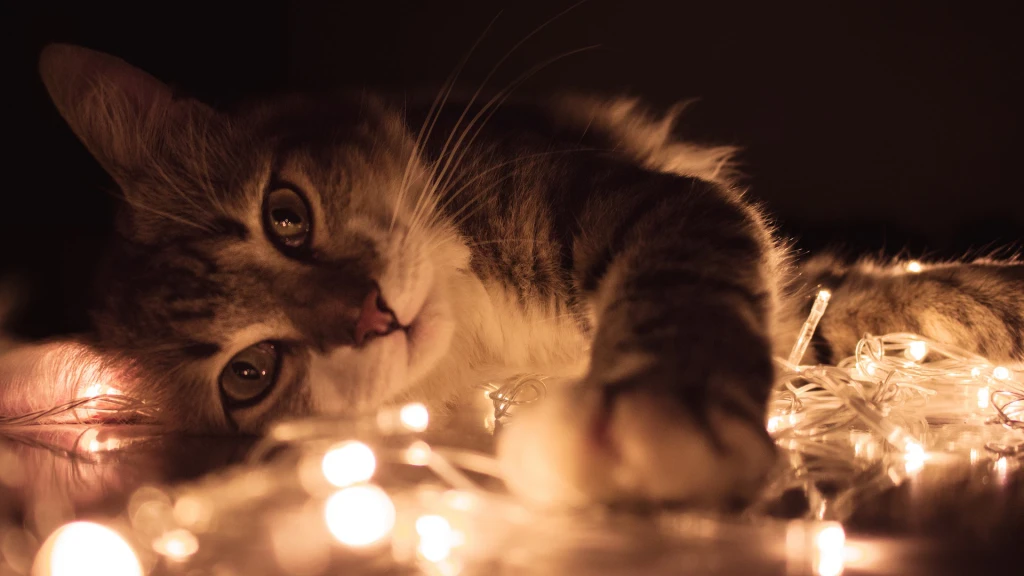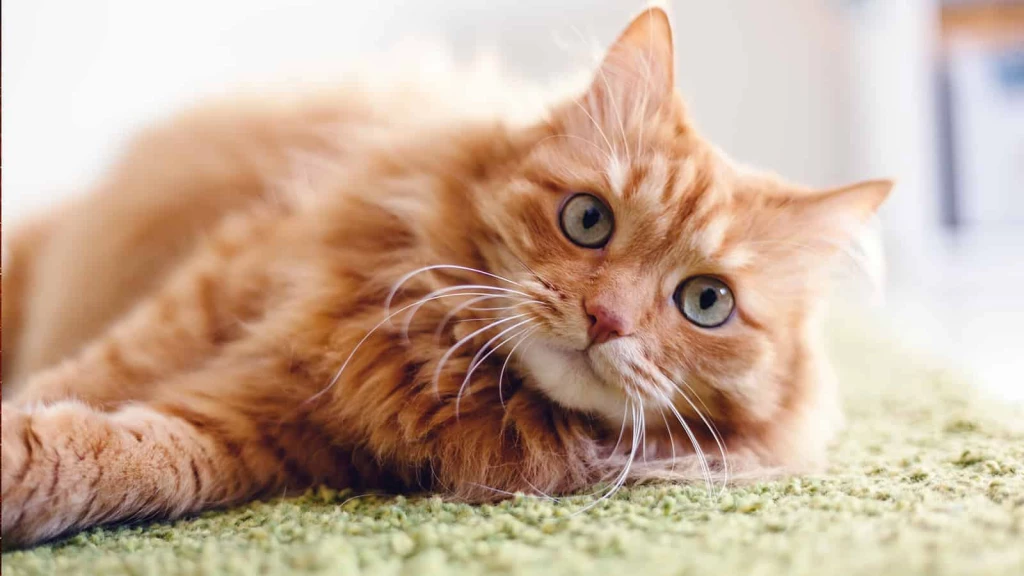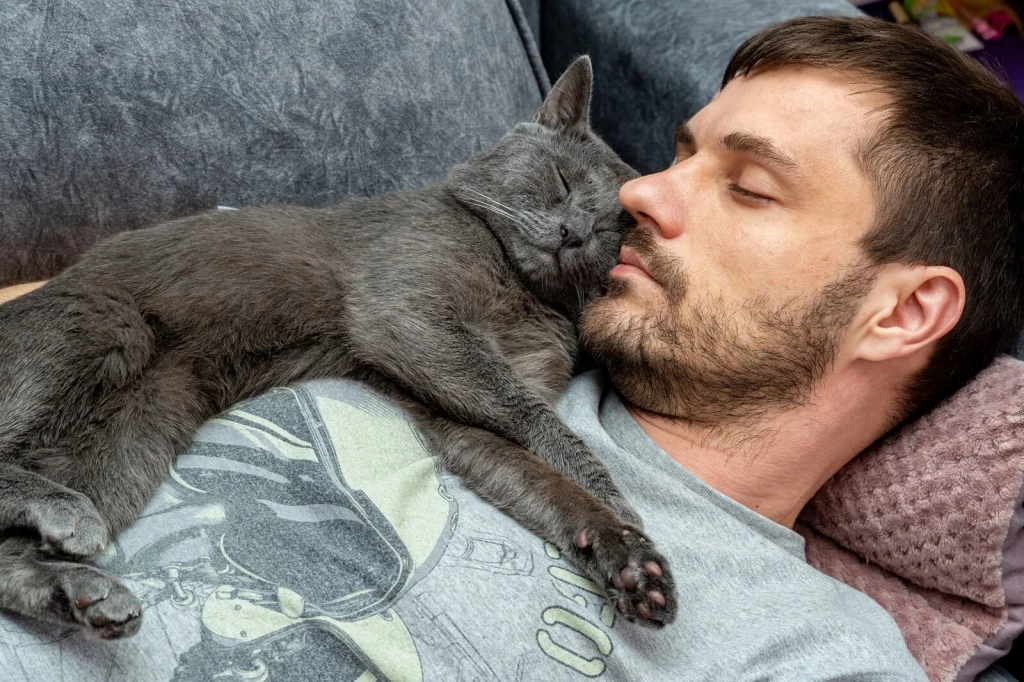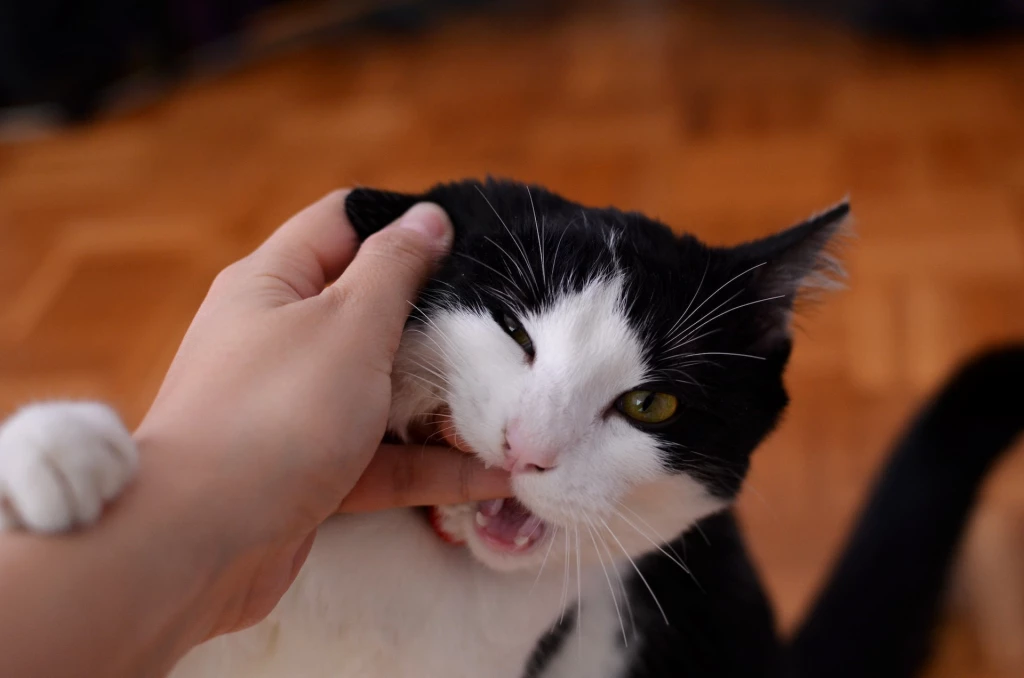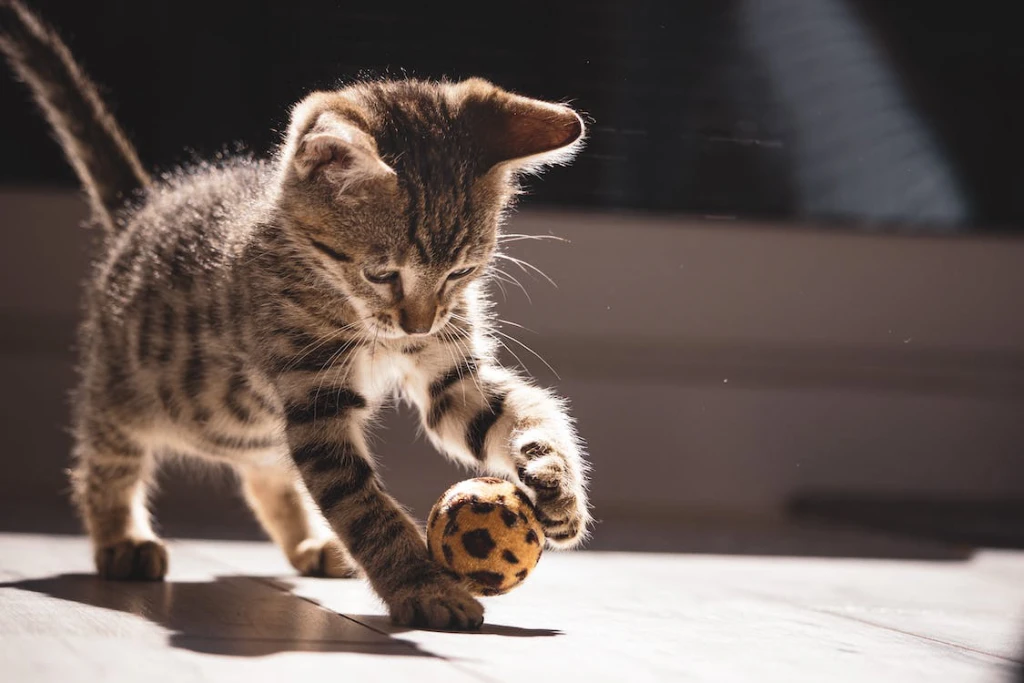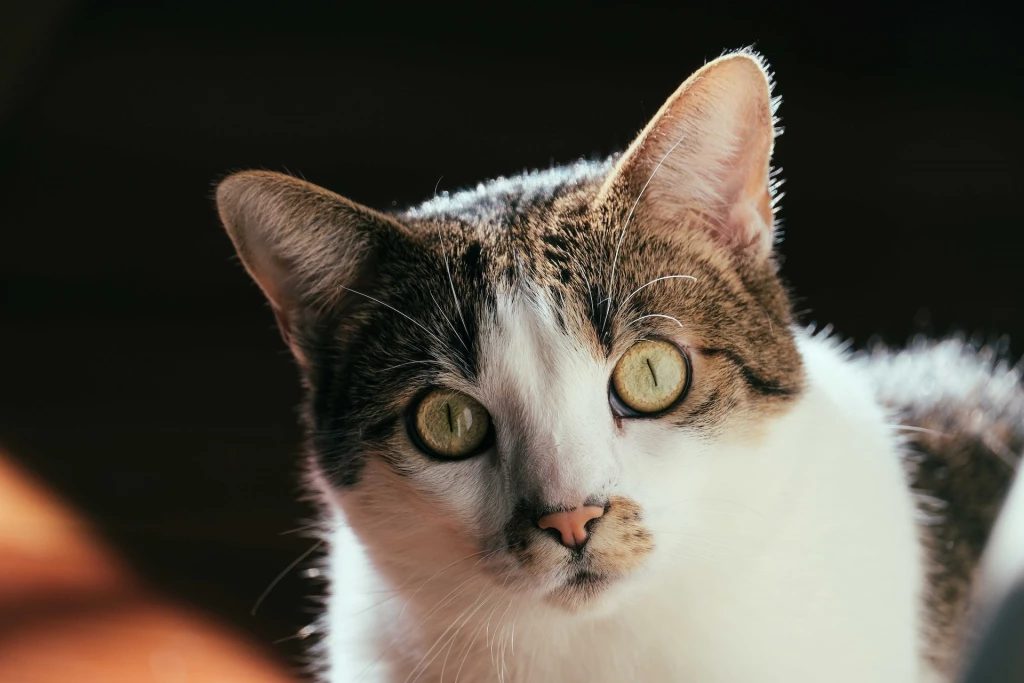Have you ever woken up to find your cat peeing on you or your bed? Have you ever wondered why your cat would do such a thing and how to stop it? If so, you are not alone. Many cat owners have experienced this unpleasant situation and have been baffled by their cat’s behavior.
In this blog post, we will explore some of the possible reasons why your cat peed on you and what you can do to prevent it from happening again. We will also share some tips and advice on how to deal with this issue and improve your relationship with your cat.
Your Cat May Be Marking Its Territory
One of the most common reasons why cats might pee on their owners is marking behavior. This is a natural instinct that cats have to mark their territory and establish their presence in their environment. When cats mark, they release a pheromone in their urine that sends a message to other cats that this is their territory.
Some signs that your cat may be marking include spraying, which is when a cat backs up to a vertical surface and sprays urine, or urine marking, which is when a cat leaves small amounts of urine around the house. Male cats that have not been neutered are more likely to exhibit marking behavior, but female cats can also mark.
To prevent marking behavior, it's important to spay or neuter your cat. This can reduce their urge to mark and decrease the likelihood of them spraying or urine marking. You can also provide your cat with plenty of scratching posts and toys to help them feel more secure in their environment. Finally, cleaning any areas where your cat has marked with an enzymatic cleaner can help to eliminate the scent and prevent them from returning to that spot to mark again.
Your Cat May Be Stressed Or Anxious
Another common reason why cats might pee on their owners is stress or anxiety. Cats are sensitive animals and can become stressed or anxious for a variety of reasons, such as changes in their environment, new people or pets in the home, or loud noises.
When cats are stressed or anxious, they may exhibit inappropriate elimination behavior as a way to cope with their emotions. This can include peeing on their owner, as well as other areas of the house.
To reduce your cat's stress and anxiety, it's important to create a calm and safe environment for them. Provide your cat with a comfortable place to sleep, plenty of toys and scratching posts, and a designated litter box that is kept clean. You can also use pheromone sprays or diffusers, which can help to calm your cat and reduce their anxiety.
If your cat is still exhibiting inappropriate elimination behavior despite your efforts to reduce their stress, it's a good idea to consult with your veterinarian or a cat behaviorist. They can help you to identify the underlying cause of your cat's stress and develop a plan to address it.
Your Cat May Have A Medical Issue
If your cat is peeing on you or other areas of the house, it's important to rule out any underlying medical issues that could be causing this behavior. Cats that are experiencing pain or discomfort while urinating may associate the litter box with this pain and avoid using it. Some common medical issues that can cause inappropriate elimination behavior in cats include:
- Urinary tract infection (UTI): A bacterial infection in the urinary tract can cause pain and discomfort while urinating, leading a cat to avoid the litter box.
- Feline interstitial cystitis (FIC): This is a chronic bladder inflammation that can cause pain and discomfort while urinating. Cats with FIC may associate the litter box with this pain and avoid using it.
- Kidney disease: Cats with kidney disease may drink more water and urinate more frequently, which can lead to inappropriate elimination behavior if they do not have access to a clean litter box.
- Diabetes: Cats with diabetes may drink more water and urinate more frequently, which can also lead to inappropriate elimination behavior.
If you suspect that your cat may have a medical issue, it's important to take them to the vet as soon as possible for a checkup. Your vet can perform diagnostic tests to identify any underlying medical issues and develop a treatment plan to help manage your cat's symptoms.
Your Cat May Not Like Their Litter Box
Another reason why cats may pee on their owners or other areas of the house is because they do not like their litter box. Cats can be very particular about their litter boxes, and if it doesn't meet their preferences, they may avoid using it altogether.
Some reasons why cats may not like their litter box include:
- The litter box is too small or too large for the cat.
- The litter box is not cleaned frequently enough.
- The litter box is too close to their food and water bowls.
- The litter is not the right texture or scent.
- The litter box is located in a noisy or high-traffic area.
To encourage your cat to use their litter box, it's important to provide them with a box that meets their preferences. This may mean trying different types of litter or litter boxes to see what your cat prefers. You can also try placing the litter box in a quiet, low-traffic area of your home and ensuring that it is cleaned regularly.
It's also a good idea to have one more litter box than the number of cats you have in your household. For example, if you have two cats, you should have three litter boxes. This will ensure that each cat has access to a clean litter box at all times.
By providing your cat with a litter box that meets their preferences and needs, you can help to prevent inappropriate elimination behavior and keep your cat happy and healthy.
Your Cat May Be Seeking Attention
Sometimes, cats may pee on their owners or other areas of the house as a way of seeking attention. Cats are social animals and require attention and interaction from their owners to be happy and healthy. If they feel neglected or are not getting enough attention, they may exhibit inappropriate elimination behavior as a way to get their owner's attention.
To prevent attention-seeking behavior, it's important to provide your cat with plenty of attention and interaction on a daily basis. This can include playing with your cat, grooming them, and spending time with them. You can also try providing your cat with puzzle toys or interactive feeders, which can help to keep them mentally stimulated and entertained.
It's also important to provide your cat with a designated area for elimination. Make sure your cat has easy access to their litter box and that it is kept clean and well-maintained. If your cat is still exhibiting inappropriate elimination behavior despite your efforts to provide them with attention and a designated area for elimination, it's a good idea to consult with your veterinarian or a cat behaviorist. They can help you to identify the underlying cause of your cat's behavior and develop a plan to address it.
Your Cat May Not Have Been Properly Trained
In some cases, inappropriate elimination behavior in cats can be attributed to a lack of proper training. Kittens learn how to use the litter box from their mothers, but if they were separated from their mothers too early or were not properly trained, they may not know how to use the litter box.
To properly train your cat to use the litter box, start by providing them with a clean, easily accessible litter box. Show your cat where the litter box is located and encourage them to use it by placing them in the box after meals or naps. Praise your cat when they use the litter box and clean it frequently to encourage them to continue using it.
If your cat is still not using the litter box after several attempts at training, you may need to consult with your veterinarian or a cat behaviorist. They can help you to identify the underlying cause of your cat's behavior and develop a plan to address it.
It's important to note that even well-trained cats may exhibit inappropriate elimination behavior from time to time due to stress, anxiety, or medical issues. It's important to rule out any underlying issues before assuming that your cat is not properly trained.
Your Cat May Have a Dislike for a New Person or Pet in the Household
In some cases, cats may exhibit inappropriate elimination behavior as a result of a new person or pet in the household. Cats are territorial animals and may feel threatened by the presence of a new person or pet, leading to stress and anxiety.
If you have recently introduced a new person or pet into your household and your cat is exhibiting inappropriate elimination behavior, it's important to give them time to adjust. Provide your cat with a safe, quiet space where they can retreat and feel secure. This can include a separate room or a cozy hiding spot.
You can also try gradually introducing your cat to the new person or pet. Start by allowing them to smell each other's scents from a distance and gradually move them closer together over time. Be sure to supervise any interactions between your cat and the new person or pet, and reward your cat for good behavior.
It's important to be patient with your cat during this time and not punish them for their behavior. Punishment can lead to further stress and anxiety, making the problem worse. If your cat continues to exhibit inappropriate elimination behavior despite your efforts, consult with your veterinarian or a cat behaviorist for further guidance.
Your Cat May Have a Behavioral Issue
In some cases, inappropriate elimination behavior in cats can be attributed to a behavioral issue. Cats are creatures of habit and may develop certain habits or preferences that are difficult to break.
If your cat is exhibiting inappropriate elimination behavior despite efforts to address any medical, litter box, or other underlying issues, it's possible that they may have developed a behavioral issue. This can include things like anxiety, territorial behavior, or compulsive disorders.
To address a behavioral issue, it's important to consult with a veterinarian or a cat behaviorist. They can help you to identify the underlying cause of your cat's behavior and develop a plan to address it.
This may involve things like modifying your cat's environment to reduce stress, providing them with behavioral therapy, or even medication in some cases. It's important to work closely with a professional to ensure that your cat's needs are being met and that their behavior is addressed in a safe and effective manner.
In some cases, it may take time and patience to address a behavioral issue in a cat. It's important to be consistent and persistent in your efforts and to reward your cat for good behavior. With the right approach and guidance, many cats with behavioral issues can overcome their challenges and lead happy, healthy lives.
Conclusion
In conclusion, there are several reasons why a cat may pee on their owner, including marking their territory, stress or anxiety, medical issues, dislike of their litter box, seeking attention, lack of training, or behavioral issues. Understanding the underlying cause of your cat's behavior is key to addressing the issue effectively.
It's important to provide your cat with a safe and comfortable environment, plenty of attention and interaction, and regular veterinary care to prevent and address any potential medical issues. Proper litter box training and management can also help to reduce the likelihood of inappropriate elimination behavior.
If your cat continues to exhibit inappropriate elimination behavior despite your efforts, it's important to consult with your veterinarian or a cat behaviorist. They can help you to identify the underlying cause of your cat's behavior and develop a plan to address it.
With patience, consistency, and the right approach, many cats with inappropriate elimination behavior can overcome their challenges and lead happy, healthy lives.
